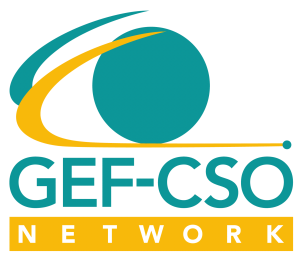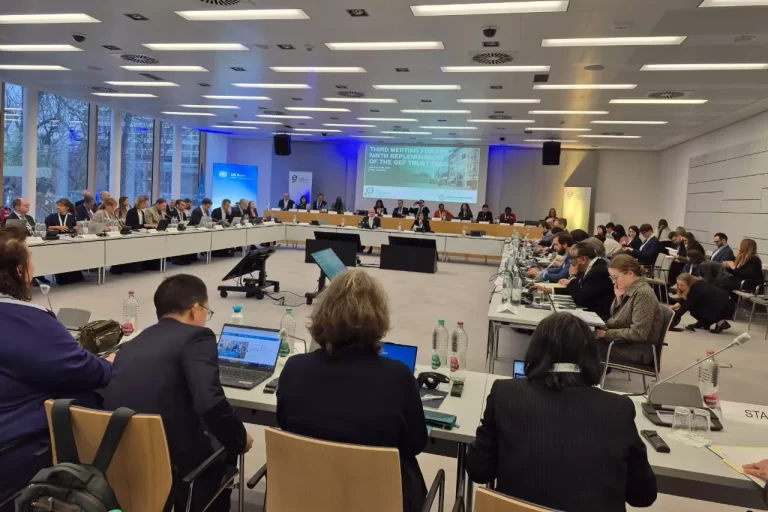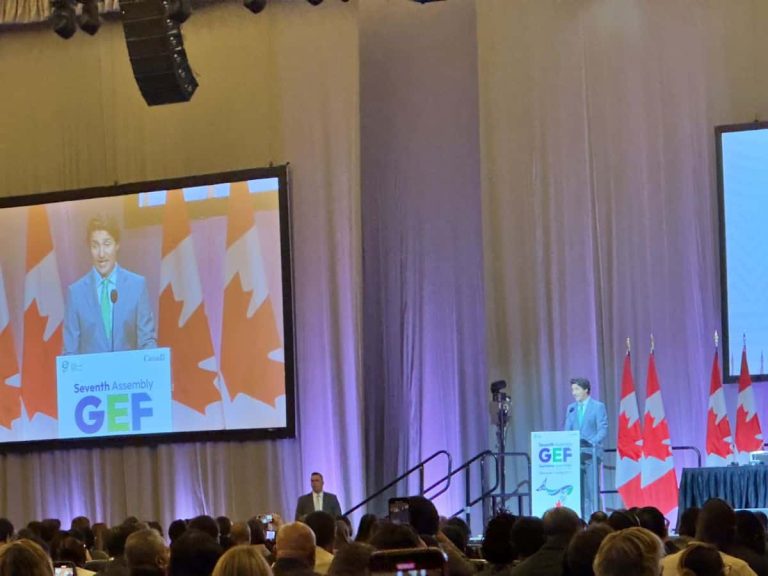The 69th Council Meeting of the Global Environment Facility (GEF), held from 2–6 June 2025, marked a critical juncture in global environmental governance. As the GEF Trust Fund nears full commitment under its eighth replenishment cycle (GEF-8), the GEF Civil Society Organization (CSO) Network actively contributed to the dialogue, reinforcing the importance of inclusive, locally rooted, and accountable programming.
Representatives of the GEF CSO Network offered statements on two key agenda items: the GEF Trust Fund Work Program and the GEF FY26 Business Plan and Corporate Budget. These interventions reflected both support and constructive critique, aimed at reinforcing the GEF’s vision of “a healthy planet and healthy people.”
Advancing Locally-Led Action Through Microfinance
One of the highlights of the June 2025 Work Program (Agenda Item 02) was the introduction of the SGP Microfinance Initiative for Locally-Led Action, proposing a $9 million GEF contribution leveraged to secure nearly $1.5 billion in co-financing—an ambitious scale-up of support for local environmental action.
The CSO Network commended this initiative for its inclusive lens, especially its prioritization of women, youth, and Indigenous Peoples. The microfinance approach has long been acknowledged as a potent tool to empower marginalized communities to undertake environmental stewardship on their terms.
The Network raised important points needing clarity and refinement:
- Linkage with the broader Small Grants Programme (SGP): Despite its shared ethos, the Microfinance Initiative appears disconnected from ongoing SGP efforts. The absence of details on how this initiative will align with national SGP activities risks fragmentation and inefficiencies. A stronger synergy could multiply impact while building on local knowledge infrastructures.
- Disproportionate Global Environmental Benefits (GEBs): For the size of the initiative, targeted benefits—14,000 hectares restored and 317,000 tCO₂ in mitigation—appear modest. While the early stage of program development may partly explain this, a recalibration is necessary to ensure that ecological and climate outcomes match the scale of investment. The Network recommends more robust targeting and GEB forecasting during the project design stage.
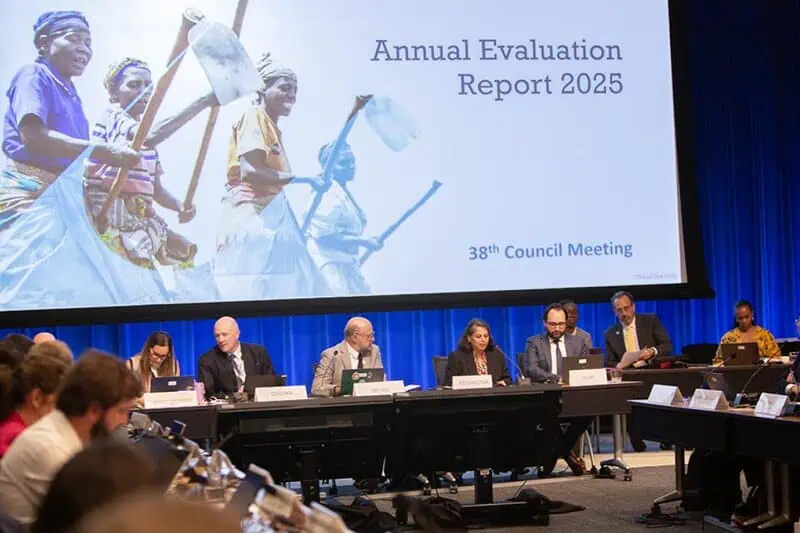
Community Inclusion in Forest Governance: A Missed Opportunity?
In addressing individual projects within the Work Program, the CSO Network drew particular attention to the Spatial-based Natural Forest Planning and Governance for Robust Ecosystems (SPARE) initiative in Indonesia. While the project rightly prioritizes participatory forest planning, the Network noted with concern that consultation with CSOs and Indigenous Peoples and Local Communities (IPLCs) appears superficial or absent in the project’s initial documentation.
Equating CSOs and IPLCs with implementing agencies under a broad “stakeholder” category undermines their distinct roles and rights in environmental governance. The CSO Network reiterated that meaningful engagement—especially at the Project Preparation Grant (PPG) stage—is critical for legitimacy and impact. Projects must also institutionalize CSO and IPLC participation in steering committees and decision-making processes throughout implementation.
Gender and Social Inclusion: A Strong Start That Needs More Depth
The Work Program rightly emphasizes gender, but broader social inclusion remains uneven. While women’s empowerment is generally addressed, youth, Indigenous Peoples, and grassroots CSOs are inconsistently integrated across the project portfolio.
The CSO Network encouraged a more holistic Whole-of-Society approach, aligning with GEF’s stated ambitions for systemic transformation. This includes investing in capacity-building, co-creation, and safeguards that ensure equitable benefits and reduce barriers to participation.
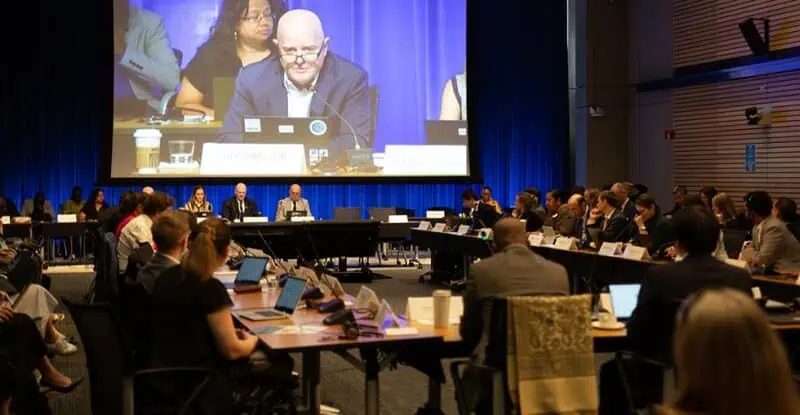
Budgeting for a Resilient Future: GEF’s FY26 Business Plan
The GEF CSO Network welcomed the FY26 Business Plan and Corporate Budget (Agenda Item 03) for its clarity, transparency, and strategic alignment. The clear fiscal accountability, continued investment in civil society engagement, and commitment to inclusive governance received particular praise.
The allocation of resources to strengthen the GEF CSO Network and advance the GEF-9 replenishment process reflects a growing institutional recognition of civil society’s role in advancing multilateral environmental goals. The expansion of SGP 2.0, envisioned as a flagship initiative, is another promising sign.
Persistent Gaps in the Small Grants Programme (SGP)
Despite these advances, significant implementation gaps persist within the SGP framework. In numerous eligible countries, especially in South Asia, the program remains dormant or obstructed by administrative bottlenecks. The Network highlighted a troubling trend: larger organizations posing as grassroots actors and complex funding processes that deter genuine community-led groups from applying.
To address these structural inequities, the Network made four key recommendations:
- Reactivate dormant SGP operations in all eligible countries, especially in climate-vulnerable regions.
- Simplify application procedures to meet the capacities of grassroots, women-, youth-, and Indigenous-led organizations.
- Institutionalize civil society engagement in Country Engagement Strategies (CES) to ensure CSOs are not peripheral but central to national planning.
- Enhance the Country Engagement Programs (CEPs) with a clear equity mandate—particularly around representation for people with disabilities, IPLCs, and other marginalized groups.
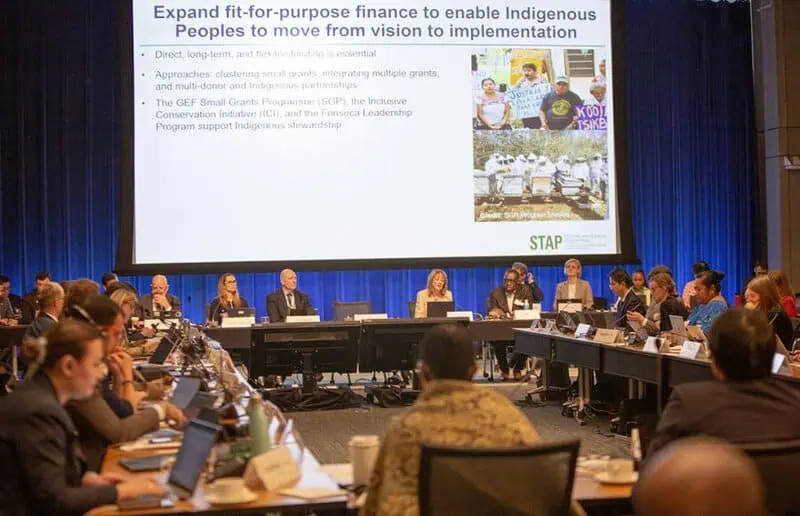
Looking Ahead: GEF-9 and the Call for Scaled-up Ambition
With 75% of GEF-8 resources now programmed and only one year left in the cycle, time is of the essence. The CSO Network urged donor countries to fulfill outstanding contributions and encouraged recipient countries and agencies to accelerate the proposal process for the remaining funds.
Moreover, the Network called for ambitious replenishment for GEF-9, linking it directly to the financial targets established under global environmental treaties. The Convention on Biological Diversity (CBD) commits to doubling biodiversity financing by 2030, and the UN Framework Convention on Climate Change (UNFCCC) calls for a tripling of climate finance.
To meet these obligations, donor countries must increase GEF contributions accordingly. Additionally, the Network advocates for more recipient countries to become contributors, reinforcing shared ownership and global solidarity in safeguarding our planet.
Final Thoughts
As the GEF Council looks ahead to its future cycles, the GEF CSO Network emphasizes the need for equity, transparency, and localization. Microfinance, forest governance, and gender mainstreaming are all critical levers—but their true potential lies in how deeply they are rooted in authentic community leadership.
The GEF has made important strides, and civil society is available to support, co-create, manage, monitor and evaluate programmes. A GEF that works with communities, not just for them, is the GEF the planet needs.
